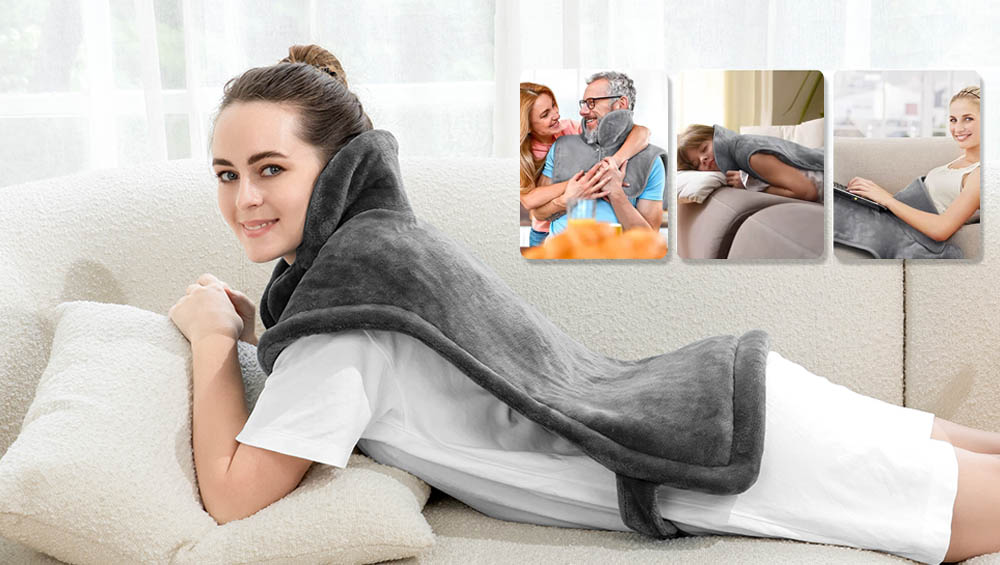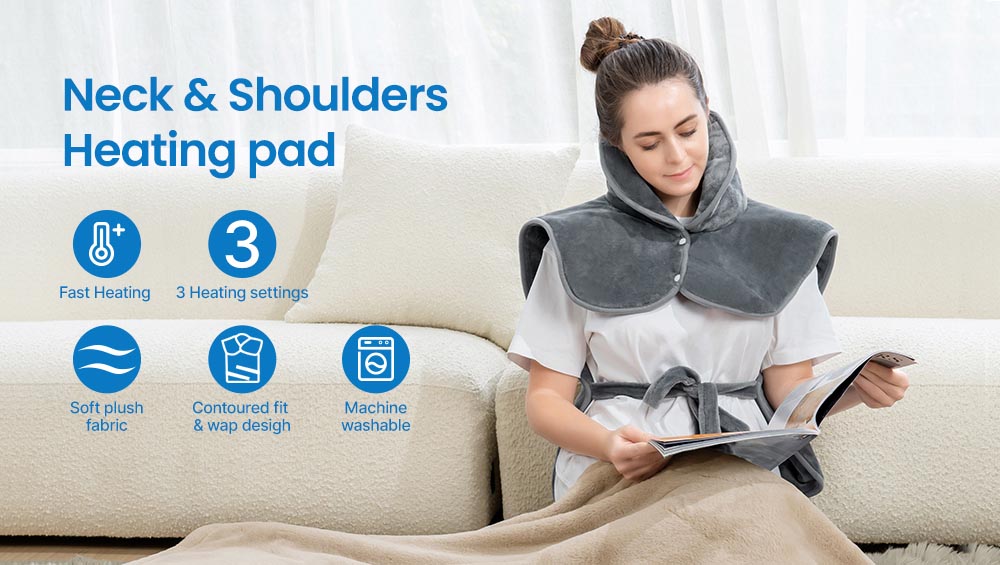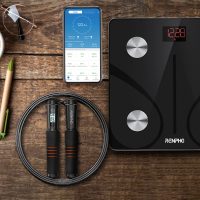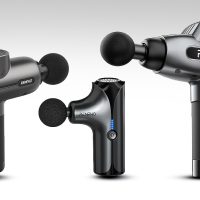Beyond Pain Relief: Surprising Ways to Utilize Heating Pads in Daily Life
Heating pads are commonly known for their pain-relieving properties, but they can also be utilized in various other ways in your daily life. Here are some surprising ways to use heating pads:
- Heat has a relaxing impact on the body, assisting in the promotion of relaxation and the reduction of stress. Use a heating pad on your back, shoulders, or neck while meditating or practicing deep breathing. The warmth can ease anxiety and give comfort.
- Bed Warmer: To warm your bed’s linens before you go to sleep, place a heating pad on it a few minutes before you plan to retire. In the winter months, especially, this may produce a warm and inviting environment for a more pleasant sleep.
- After an exercise or other physical activity, heating pads can help with muscle recovery. Increased blood flow, muscular relaxation, and relief from discomfort following exercise can all be achieved by applying heat to the targeted muscle region.
- Menstrual Cramp Relief: Heat can be effective in easing menstrual cramps. Place a heating pad on your lower abdomen to help relax the muscles and reduce the discomfort associated with menstrual cramps.
- Warm-Up Therapy: Use a heating pad to warm up specific body parts before engaging in activities like stretching, yoga, or exercise. Applying heat to the muscles and joints can enhance flexibility and reduce the risk of injury.
- A heating pad might be your greatest buddy when you’re cold. You may use it to warm up your hands, feet, or any other parts of your body that need more heat. For an even cozier and more comfortable sensation, you may even tuck it inside your jacket or blanket. Just keep in mind to abide by the safety precautions and not heat it up too much.
- Adding some aromatherapy to a heating pad is another way to enjoy it. Some heating pads contain unique elements or compartments where you may place fragrant herbs or oils. By doing so, you may unwind while enjoying both heat and aroma. You might feel more at ease and content with aromatherapy.
Factors to Consider for Optimal Comfort and Effect
Size of the heating pad
Part of your body that needs treatment will determine the size of the heating pad. You can probably get away with using a smaller heating pad if you are only treating a small area, like your neck or back. You will need a larger heating pad, though, if you need to treat a bigger area, such your abdomen or legs.
Temperature setting
The heating pad’s temperature setting matters greatly for comfort and efficiency. Pad might burn you if it becomes too hot. The heating pad won’t work as a pain reliever, though, if it’s not hot enough. The optimal temperature range is 40.5°C and 43°C (105°F to 109°F).
Length of use
Recommended maximum time for using a heating pad is 20 minutes. Take breaks every 20 minutes if you need to use the heating pad for extended lengths of time.
Safety precautions
When utilizing a heating pad, there are some precautions that are important to keep in mind. The first guideline is that you should never use a heating pad while asleep. Second, don’t use a heating pad on skin that is already harmed. Third, you should avoid applying a heating pad to swollen or inflammatory body parts.Other factors
There are a few other factors to consider when using a heating pad, such as the fabric of the pad and the presence of any electrical cords. If you have sensitive skin, you may want to choose a heating pad with a soft, cotton cover. If you are concerned about electrical safety, you may want to choose a heating pad with a cordless design.iveness”Material
Almost all heating pads are made of fabric which is machine washable. Typically, soft flannel is utilized to provide a pleasant, warm feeling. When it deteriorates, you may also purchase a replacement cover.
Tips for Safe and Effective Use of Heating Pads: Dos and Don’ts
Dos:
- Read the guidelines: To ensure safe use, always carefully read and follow the heating pad’s instructions.
- Choose the appropriate temperature: Set the heating pad to a setting that is soothing and effective without being uncomfortable or burning. If needed, start with a lower setting and raise it gradually.
- Limit the amount of time you spend on a heating pad. Usage should normally be limited to bursts of 20 to 30 minutes.
- Set up a barrier as a safety: To avoid direct skin contact, place a small piece of cloth or a towel between the heating pad and your body. Burns and overheating are less likely as a consequence.
- Check for any damage: Check the heating pad for any signs of damage, such as frayed cables or cracks, before each usage. Never use a heating pad that seems to be broken.
- When not in use, keep the heating pad in a secure and dry area, away from moisture and extreme heat. Keep it away from children and pets.
Don’ts:
- Sleep with a heating pad: Sleeping with a heating pad increases the risk of burns and may induce overheating. Use it only while you are awake and able to keep an eye on it..
- Excessive heat: Avoid using the heating pad at extremely high temperatures, since this could end up in burns or skin injury. Follow the manufacturer’s suggested temperature guidelines.
- Do not use a heating pad on sensitive or wounded parts, open wounds, or swelling body parts. Heat may increase inflammation or cause more harm. In such instances, get medical attention from a qualified doctor.
- Don’t let it out of your sight: Make sure you keep an eye on the heating pads and don’t let anyone use them without your supervision, especially if they are children or people who might have trouble telling you if they feel too hot or changing the temperature.
- If you’re pregnant, talk to your doctor before using a heating pad. Some types of heat therapy may not be safe for you and your baby. A heating pad can help with some pregnancy discomforts, but you need to use it carefully.






